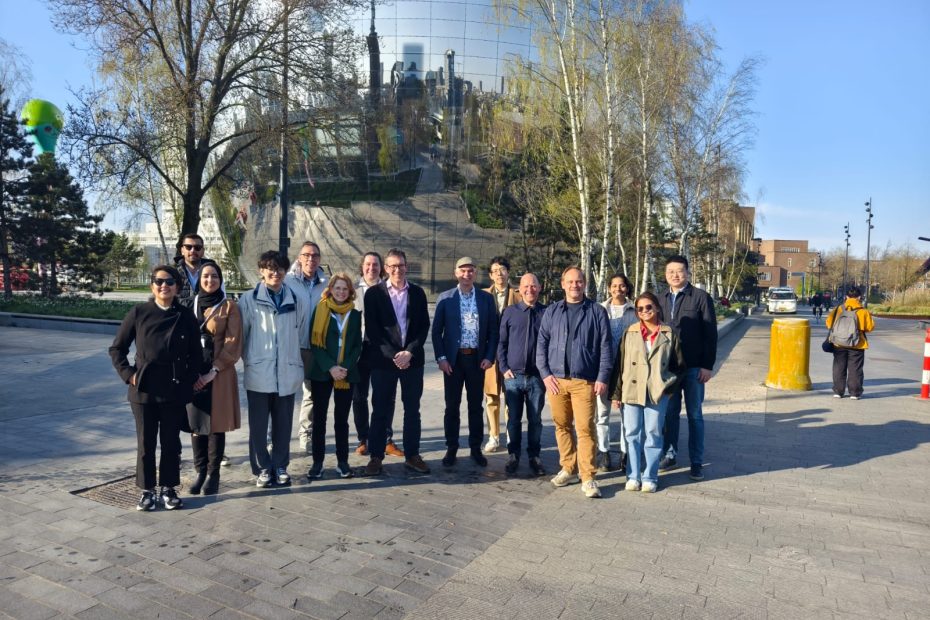By: Carla Robb
On April 3rd, the XCARCITY programme organised an engaging workshop with the INFUZE Programme from ITS Leeds focusing on research by design methodologies and digital twin architecture. The event featured interactive sessions and presentations, providing a platform for researchers to share their findings and collaborate on innovative solutions. The event was hosted by the Metropolitan Region Rotterdam the Hague (MRDH) in their office in Rotterdam, the Netherlands.
The day began with a walkabout led by Bart van Arem, exploring public spaces and public art in Rotterdam. This informal start allowed participants to connect and set the tone for a day of creative exchange. Following the walkabout, we gathered for coffee and an introduction to the two programmes. Bart van Arem and Greg Marsden provided an overview of INFUZE and XCARCITY, highlighting the goals and synergies between the two initiatives.
The first session delved into design methodologies, with Arjan van Binsbergen from XCARCITY showcasing the research by design approach in the five-year programme, linking the methodology to design cycles. Cyriel Diels and Dan Philips from INFUZE shared the INFUZE approach and the participatory nature of the methodology.
INFUZE then hosted an interactive session on citizen engagement, showcasing the approach adopted in the first citizen assembly for the INFUZE Programme. The session allowed us to dive into philosophies and beliefs that underpin our approach to design and city engagement. The discussions were thought-provoking and provided valuable insights on how XCARCITY could integrate these approaches.
After a lunch break, the spotlight shifted to XCARCITY researchers, who presented their progress to date. This session provided a space for the INFUZE team and researchers to dive into in-depth conversations about their research, ideas, and possible innovations. The interaction was invaluable for all participants.
Maaike Snelder and Jingjun Li introduced XCARCITY federated Digital Twin ideas, presenting data, models, and digital twins. Jingjun provided a detailed overview of digital twin architecture, discussing technical aspects and potential applications in urban environments.
This was followed by an interactive session hosted by Jingjun Li and Han Zhou, who showcased their work on the ABM approach and MATSim (Activity Based Modelling). They guided participants through a hands-on exploration of these tools and their application in the MRDH Region. This collaborative session generated innovative ideas for applying digital twins to real-world scenarios.
The workshop concluded with a reflection and close-out session, where participants discussed future collaboration opportunities.
Overall, the XCARCITY-INFUZE workshop was a resounding success, fostering collaboration and innovation. We look forward to continuing our work and collaborating on our ideas for lower car neighbourhoods in the future.
